A.H. Kim's Blog, page 3
April 24, 2020
THE ISOLATION JOURNALS - DAY 24 - PANIC SAVED MY LIFE
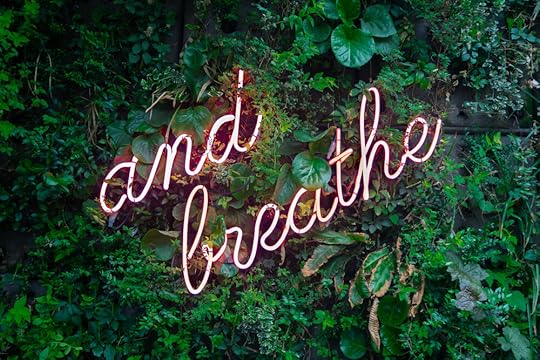
Today’s prompt:
Because breathing is essential for life, it touches every part of our existence. What does it mean to you to breathe? When was the last time you really noticed your breath? What were you doing? Was there ever a time when you realized you had taken your breath for granted?
Panic Saved My Life
It was the week before my 39th birthday. My siblings had flown from the east coast to join me, my husband, and our two sons for vacation in San Diego. We shared a rented condo, ate fish tacos from Roberto’s, went to the beach and Legoland. It was pure bliss.
It was the morning of my 39th birthday. My husband woke up early to drive my siblings to the airport. The week of vacation, relaxation, and celebration was over. Soon, we’d be back in San Francisco getting ready for school and work – the daily grind would start over again. It was hard saying good-bye.
My sons went into the upstairs bedroom to play on their Gameboy, and I was left alone in the living room. Suddenly, I couldn’t breathe. It was as if the cells in my lungs had all collapsed. As I struggled for oxygen, I felt a fine mist of sweat cover my face and body. Is this what it feels like to die?
Just as suddenly, my lungs opened, and I could breathe again. But now my heart was racing; my mind too. Was I going crazy? What was wrong with me?
I lay on the couch, working hard to control my breathing, my heart, my mind. By the time my husband came back from the airport, I was almost recovered. I told him about what had happened, and he responded, “It sounds like you had a panic attack.”
A panic attack? I’d never had a panic attack before. The only thing I knew about panic attacks came from Woody Allen movies, and he always made them sound funny. This was definitely not funny.
We packed our stuff into our car and headed back to San Francisco. For the first part of the trip, I’d scream every 30 minutes or so, “Pull over now! I can’t breathe!”
“We can’t keep pulling over,” my husband said, patting my back as I dry-heaved into the ditch alongside I-5. “At this rate, it’ll take us a week to get home. And besides, you’re scaring the boys.”
And so, I sucked it up. I practiced deep-breathing. I practiced looking out at the horizon, even though that was for sea-sickness and not everything-sickness. I practiced applying pressure to the space between my thumb and wrist, even though that was for menstrual pain and not psychic pain.
By the time we got home to San Francisco, I was convinced I was going insane.
“Hello, UCSF Women’s Health,” the cheery receptionist answered the phone. “How can I help you?”
“Uh….” I said. “I’d like an appointment with Dr. X?”
“Sure,” the receptionist said. “Are you an established patient? Because….”
“I’m an established patient,” I said, cutting to the chase.
“OK, then,” the receptionist said, “the earliest appointment we have for established patients is six weeks from today.”
“I can’t wait that long,” I said, pressing my thumbnail into the space between my thumb and wrist. I felt my heart racing, my mind unmoored. Surely, I was going insane.
“Are you having a medical emergency?” she asked.
I felt stupid saying that I’d had a panic attack. A panic attack wasn’t a medical emergency – it was a Woody Allen punchline. Then I remembered something that had happened two weeks before my 39th birthday. Something that had sent a chill through me but that I’d pushed to the back of my mind.
“I found a lump,” I said. “A lump in my breast.”
Even in my state of temporary insanity, I knew this would get the receptionist’s attention.
“Can you come in this afternoon?” she asked.
That afternoon, I was diagnosed with invasive ductal carcinoma – commonly known as breast cancer.
From that moment on, I’ve been a cancer patient. I’ve experienced multiple surgeries, eight rounds of toxic chemotherapies, a year of intravenous targeted therapy, five years of daily hormone therapy, and innumerable blood tests and body scans.
I am lucky and so grateful to be alive.
But the curious thing is this:
I haven’t had a panic attack since.
THE ISOLATION JOURNALS - DAY 24

Today’s prompt:
Because breathing is essential for life, it touches every part of our existence. What does it mean to you to breathe? When was the last time you really noticed your breath? What were you doing? Was there ever a time when you realized you had taken your breath for granted?
Panic Saved My Life
It was the week before my 39th birthday. My siblings had flown from the east coast to join me, my husband, and our two sons for vacation in San Diego. We shared a rented condo, ate fish tacos from Roberto’s, went to the beach and Legoland. It was pure bliss.
It was the morning of my 39th birthday. My husband woke up early to drive my siblings to the airport. The week of vacation, relaxation, and celebration was over. Soon, we’d be back in San Francisco getting ready for school and work – the daily grind would start over again. It was hard saying good-bye.
My sons went into the upstairs bedroom to play on their Gameboy, and I was left alone in the living room. Suddenly, I couldn’t breathe. It was as if the cells in my lungs had all collapsed. As I struggled for oxygen, I felt a fine mist of sweat cover my face and body. Is this what it feels like to die?
Just as suddenly, my lungs opened, and I could breathe again. But now my heart was racing; my mind too. Was I going crazy? What was wrong with me?
I lay on the couch, working hard to control my breathing, my heart, my mind. By the time my husband came back from the airport, I was almost recovered. I told him about what had happened, and he responded, “It sounds like you had a panic attack.”
A panic attack? I’d never had a panic attack before. The only thing I knew about panic attacks came from Woody Allen movies, and he always made them sound funny. This was definitely not funny.
We packed our stuff into our car and headed back to San Francisco. For the first part of the trip, I’d scream every 30 minutes or so, “Pull over now! I can’t breathe!”
“We can’t keep pulling over,” my husband said, patting my back as I dry-heaved into the ditch alongside I-5. “At this rate, it’ll take us a week to get home. And besides, you’re scaring the boys.”
And so, I sucked it up. I practiced deep-breathing. I practiced looking out at the horizon, even though that was for sea-sickness and not everything-sickness. I practiced applying pressure to the space between my thumb and wrist, even though that was for menstrual pain and not psychic pain.
By the time we got home to San Francisco, I was convinced I was going insane.
“Hello, UCSF Women’s Health,” the cheery receptionist answered the phone. “How can I help you?”
“Uh….” I said. “I’d like an appointment with Dr. X?”
“Sure,” the receptionist said. “Are you an established patient? Because….”
“I’m an established patient,” I said, cutting to the chase.
“OK, then,” the receptionist said, “the earliest appointment we have for established patients is six weeks from today.”
“I can’t wait that long,” I said, pressing my thumbnail into the space between my thumb and wrist. I felt my heart racing, my mind unmoored. Surely, I was going insane.
“Are you having a medical emergency?” she asked.
I felt stupid saying that I’d had a panic attack. A panic attack wasn’t a medical emergency – it was a Woody Allen punchline. Then I remembered something that had happened two weeks before my 39th birthday. Something that had sent a chill through me but that I’d pushed to the back of my mind.
“I found a lump,” I said. “A lump in my breast.”
Even in my state of temporary insanity, I knew this would get the receptionist’s attention.
“Can you come in this afternoon?” she asked.
That afternoon, I was diagnosed with invasive ductal carcinoma – commonly known as breast cancer.
From that moment on, I’ve been a cancer patient. I’ve experienced multiple surgeries, eight rounds of toxic chemotherapies, a year of intravenous targeted therapy, five years of daily hormone therapy, and innumerable blood tests and body scans.
I am lucky and so grateful to be alive.
But the curious thing is this:
I haven’t had a panic attack since.
April 23, 2020
THE ISOLATION JOURNALS - DAY 23

Today’s prompt:
Meditate on places. If you’re working on fiction, perhaps choose places from that fictional world. The easiest might be your childhood home, but it could be: a restaurant, a street, a parking lot, a ferry station, a borrowed home in the Catskills where it rained for three days or a stranger’s glass penthouse where you once did too many drugs. Write down any images, details, or words that come to mind. Don’t worry about complete sentences. Don’t worry about describing the place as much as describing what it felt like.
This isn’t research, or even a place to collect lines of dialogue or turns of story. It is simply to remember, to feel out for a tender spot, search your own memories for the surprising detail, the “punctum,” which Barthes defined as, “the accident which pricks me.”
Home
Eastern Hills Mall, Williamsville, New York (1976)
I’m hanging out with my friends Julie DelBello and Lisa Wilinsky. We’ve spent the past hour at Fashion Island checking out the jewelry (we all got our ears pierced last year) and at Spencer’s laughing at the gag toilet paper and scandalous t-shirts. We stroll the mall’s main hallway, hoping to run into some cute boys from school, when we pass the full-length mirrors at the entrance of The Gap.
It’s then that I see our reflection: two American girls and an Oriental one. Who is that girl who doesn’t blend in?
Lotte Department Store, Seoul, South Korea (2012)
I’m sightseeing with my elderly mother and middle-aged cousin. We’ve spent the past hour at Lotte, Korea’s premier department store, admiring the legendary food court, which puts Harrods’ famed food halls to shame. We walk out of the store onto the busy thoroughfare, when we see a family of American tourists, instantly recognizable by their fair skin and mass-produced clothes. They pass us by without a second look.
It’s then that I see myself through their eyes: a Korean no different from the others in this crowd. “I’m American, just like you!” I want to shout.
Golden Gate Park, San Francisco, California (2020)
I’m walking in the park with my husband. We’ve spent the past week quarantined in our home. We emerge from our urban isolation, masks shielding our faces, to stretch our legs and jump-start our hearts. We reach the top of the hill and take off our masks for a breath of fresh air. Another couple in the distance takes off their masks and lights up a joint.
It’s then that I realize: no one really cares. This crazy quilt of immigrants and pioneers, misfits and rejects, innovators and rebels. We’ve all somehow found ourselves in this strange and magical place called California. “This is what it feels like to be home,” I say.
April 22, 2020
THE ISOLATION JOURNALS - DAY 22
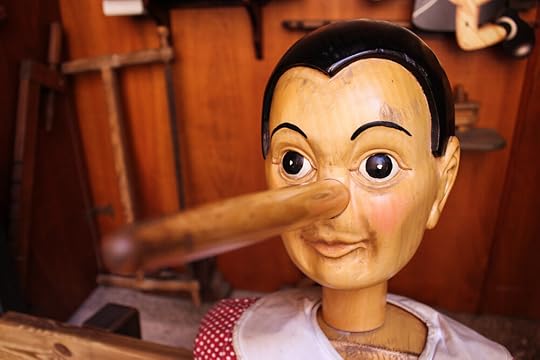
Today’s prompt:
Think of a story that’s keeping you stuck—it might be a story about a friend or family member, a co-worker, or even yourself (some version of “I’m not loveable” or “I can’t trust people” or ‘Nothing ever works out for me,” etc.). Now imagine the story from the point of view of every other “character” in the story. How would they tell it? How would their version of the same event differ from yours? What can you see now that you weren’t willing or able to before? How does including their points of view add complexity and nuance to the storytelling? How does taking responsibility for your role in the story make the story far more interesting and compelling to the reader?
Imposter Syndrome, or “Are My Pants on F**kin’ Fire?”
When I read today’s prompt, I was reminded of a video I saw on Facebook called Cute House that made me laugh out loud. Take seven minutes to watch it now. I’ll wait, don’t hurry.
The following piece is inspired by that video. If you didn’t take time to watch, the piece will still make sense, but it won’t be as much fun. (C’mon, people: you’re stuck at home. Make time for fun.)
Scene: Interior, Book Passage bookstore in the Ferry Building, San Francisco
Talented Author Friend: I’m so pleased to welcome you to the launch party for local author A.H. Kim, whose debut novel A Good Family is being released today.
(Generous applause.)
Me: Thank you so much for that kind introduction, and thanks to everyone here who took time out of their busy schedules to be with me today. I know you all have better things to do with your time than sit in this tight space, masks on, six feet away from your nearest neighbor, but I do appreciate it.
Talented Author Friend: Actually, I can think of nothing better to do with my time than celebrate this tremendous accomplishment with you, and I’m sure most people in this room would agree with me. This is the culmination of 8 years of hard work – work that you squeezed in on weekends and late nights on top of your demanding job, family commitments, and community service work. Honestly, I don’t know how you did it. So, tell me: have you always wanted to be a writer?
Me: Well, I’m still uncomfortable calling myself a writer. I know people say that anyone who writes is a writer, so by that standard, I guess I qualify. But I wouldn’t presume to call myself a real writer – as in, a real professional writer.
Man in the Audience (standing up): Ahem, excuse me? I’m your agent. I represent authors whose works have become bestsellers, won awards, been turned into major motion pictures. I receive hundreds – probably thousands – of queries in my in-box every month, and I chose yours. I read your manuscript in two days and offered you representation on the third day. I spent a full year helping you revise your manuscript, which then got offers from two publishers. You think I would do all that for someone who’s not a real writer?
Woman in the Audience (standing up): I’d like to echo the comments of that man twelve feet away from me. I’m your editor. I work at a Big Five publisher. I’ve got over a decade of experience in the publishing industry. I had to put my reputation on the line by going to bat for your manuscript with my editorial board. We don’t often offer publishing deals to unknown authors unless they have an existing platform, which you don’t. The definition of a professional is someone who gets paid for what they do. And while your advance may not have been record-setting, it wasn’t chump change either. Given all that, why don’t you consider yourself a professional writer?
Another Woman in the Audience (passing her business card to the agent and editor): I consider myself a professional writer. I majored in English in college and have an MFA from a reputable program. I’ve published articles in major newspapers and magazines, and a few of my short stories have even appeared in literary journals. But I don’t have an agent…yet. I’ve never completed, let alone published, a novel. So, for you to sit up there and claim “I’m not really a writer” – it’s kind of insulting, you know? What more does your delicate ego need to consider yourself a real writer?
Another Man in the Audience (pulling off his mask, sending gasps throughout the room): You’re my friend, Ann. I’ve been following you on this incredible writing journey for a long time. I think I’m a pretty smart guy, better read than your average Joe. I’ve read every single one of your daily Isolation Journals. I’m constantly telling you what a great writer you are. So, what I want to know is: “Are my pants on f**kin’ fire?”
Me: (Stunned silent.)
Talented Author Friend: OK, then, why don’t we start this off with a short reading from your book?
April 21, 2020
THE ISOLATION JOURNALS - DAY 21

Today’s prompt:
Take a few deep breaths. Ground yourself in your body. Bring your attention to your sternum and your hands. Your legs and feet. Do you feel electricity? If so, where? Do you feel warmth or coolness? How is your heart? If you’re experiencing an emotion, where does it show up in the body? What color, what shape does it take?
Enter into your body as much as you can and then write about the experience—what you noticed, what you encountered, what you learned.
Not So Quiet Mind
It’s less than five minutes from my house to Golden Gate Park. My preferred route is up the steep road through the Arguello Gate and then down the narrow footpath behind the Victorian-era Conservatory of Flowers. The Dahlia Garden is one of my favorite places in the city.
I settle myself down on a bright green-painted wooden bench with a view of the swaying orange and yellow poppies. I close my tired eyes and take a deep breath as directed by today’s prompt.
I let out a cough.
And then another.
I open my eyes, wondering if anyone notices. The attractive young couple in their bright athletic wear and regulation N-95 masks. The hipster toddler racing around on his Skuut wooden balance bike. The homeless man rummaging around the metal garbage bin for recyclables. No one seems to care about me.
“It’s just a cough,” I say to myself. “Think about today’s prompt. Bring your attention to your sternum. Your hands. Your legs and your feet.”
Another cough.
My mind drifts from the task at hand. I’ve had a nagging cough for the past few weeks. Nothing serious. No fever. Just this tiny, persistent, nagging cough.
I’m reminded of the prompt from Day Six, when I had to close my eyes and write about what I saw on the inside of my eyelids. For me, it was an epic battle between dread and excitement.
“Quiet your mind,” I think. But my mind refuses to obey.
This particular spot in the park has a special place in my memory. It always reminds me of my friend Jen. We used to meet up here and go for long walks. It was here that I first learned that Jen’s cancer had metastasized. It was here that we talked about the clinical drug trials Jen was hoping to qualify for. It was here that we talked about Jen’s end-of-life plans.
I suppress another cough.
When I was a teenager, I noticed a strange feeling in my chest. “I think I’m having a heart attack,” I told my parents. We went to see a number of specialists, who ran a battery of tests. Apparently, my heart skips a beat sometimes. It’s odd but not fatal.
Whenever a new doctor presses their stethoscope against my chest, they ask, “Do you know your heart skips a beat?” And I answer, “Yes, I know.”
So here I am, sitting on this bright-green wooden bench with the early evening sun. I’ve got my eyes closed, trying to bring my attention to my sternum and my hands and my legs and my feet.
But all I can really think about is my sweet friend Jen who died last year, and my odd heart that sometimes skips a beat.
April 20, 2020
THE ISOLATION JOURNALS - DAY 20
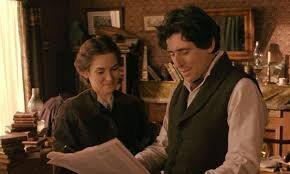
Today’s prompt:
Look back on the past few weeks and consider what has felt momentous for you. What have you let go of, surrendered, only to learn from? Has anything felt fated, or fallen into place? Write from the depths of that knowing. Of trusting the signs. Explain what you’ve witnessed in yourself. What tiny revolution have you faced?
Let’s Be Frank
There’s a scene in Little Women in which Dr. Bhaer, the erudite German professor and unlikely love interest, tells Jo March, the headstrong protagonist and aspiring writer, that the “sensational” pieces she has written are not worthy of her – that they are, in a word, crap. Understandably, this puts a bit of a damper on their budding romantic relationship.
I recently had my own Dr. Bhaer moment (without the romantic component). My dear friend – let’s call him Frank – had read the advance reader copy of my debut novel and was effusive about its impending publication. He was not so effusive, however, about its content.
“You’ve led such a rich life,” he said. “Your years as a working mom. Your cancer struggles. Your brother’s death. Your immigrant story. I don’t feel like this book does justice to those experiences.”
Like Jo March, my initial reaction was somewhat defensive. “It’s not intended to do justice to my life experiences,” I said. “It’s a piece of commercial fiction. A domestic thriller. Not a memoir.”
“I get that,” Frank said. “I’m just saying: I think you can do more.”
Like Dr. Bhaer, Frank wasn’t trying to be cruel; he was trying to be honest. And his intentions weren’t to criticize but rather to inspire. He had faith in my ability to tell a story that would move people deeply, if only I had the courage to write it.
Fast forward a few months to the COVID-19 crisis. The first prompt for the Isolation Journals shows up in my in-box. It’s a bit of a softball: write a letter to someone you know. It would be easy to write something light, something entertaining. Instead, I decide to go deep, to put it all on the line.
I write about my years as a working mom. My cancer struggles. And my brother’s death. I decide to save my immigrant story for a future journal entry. After all, I’ve got 29 more days to go.
After I finish drafting that first entry, I spend a long time staring at the “save and publish” button. My author website and Facebook account are public. Anyone can read them – my family and friends, my co-workers, complete strangers. Do I really want to bare my soul to them? Hearing Frank’s voice in my head, I take a deep breath and press the button.
I’m blown away by the reaction to my first entry. People seem genuinely touched. By revealing my most personal details, I’ve somehow tapped into the universal.
I have less trouble pressing “publish” after that first day, and most of my journal entries continue to go deep. I explore the themes Frank mentioned in our awkward Dr. Bhaer conversation. Serious stuff. Death. Sacrifice. Loneliness. But a few of my journal entries are lighter – casual one-offs that make me laugh even while I’m writing them. Mary Tyler Moore and her sassy hat. Frickin’ Greg Wise and his twinkling eyes. Ivanka Trump at the bottom of a TJ’s bag.
Today’s prompt talks about “trusting the signs.” What could be a clearer sign than a thumbs up on Facebook? By that standard, the clear popular winner in the Isolation Journals (AH Kim Edition) – with a record-setting 31 likes on Facebook! – is my review of the Hotel San Francisco. It’s perhaps the fluffiest of my fluff pieces.
I recognize that popular success is not true success. In the end, it doesn’t matter how many “thumbs up” a piece receives but, rather, how many hearts it touches. I have faith that my journal entries that garnered just 3 or 4 reactions on Facebook actually touched many more people than that.
That said, I also know that 31 “thumbs up” is more than three times the number of reactions for any other of my Isolation Journal posts. I know that, in these difficult times, people want to be distracted, comforted, and yes, amused. And so I’ve resolved to stop listening to my inner (and outer) critic and, instead, to write content that feeds my soul, conveys a message, or simply makes me laugh.
Frankly, and with all due respect to Dr. Bhaer, there is no such thing as “worthy” or “not worthy” when it comes to reading or writing. Sometimes – especially these days – it’s not about whether you can do more.
It’s about whether you can do what feels right for you.
April 19, 2020
THE ISOLATION JOURNALS - DAY 19
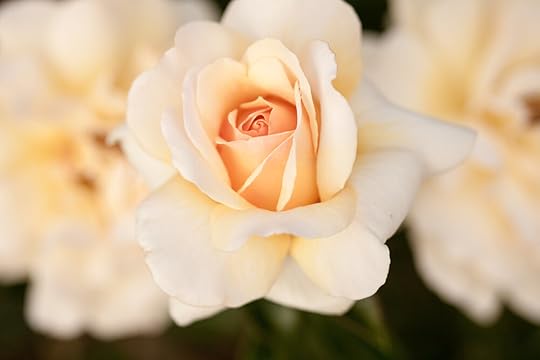
Today’s prompt:
Write about a time when you (or your character) experienced something that may be a common human event (for example: scratching an itch, sneezing, petting an animal, etc.), with concrete language that brings the experience to life. Try using all of the senses in order to avoid cliché.
The Miracle of Breath
The mask is itchy against my face. The pale pink cotton felt light and smooth when I selected it from my bin of scraps. Thirteen years ago, I washed the fabric in the mildest detergent before using it to sew a baby quilt for my first-born niece. I thought time would soften the fabric, but I was wrong.
The mask is snug against my face. The patient, precise woman on the internet showed me how to use the flexible wire and shoelace ties to ensure a tight seal on the nose and cheeks. Forty-plus years ago, I learned how to use a sewing machine in Home Ec class. I thought those old-fashioned skills would never come in handy, but I was wrong.
The mask is moist against my face. The condensation from my breathing collects in the tight-weave fabric billowing in and out. Sixteen years ago, I would have sold my soul for the promise of being alive today. I thought cancer was the worst thing that could happen to me, but I was wrong.
I arrive at my destination: the Rose Garden in Golden Gate Park. It’s April, and the first blooms of spring are just making their appearance.
I take off my mask. I breathe in. I breathe out.
My lungs expand. My face feels free.
The air smells sweet – even without the roses.
April 18, 2020
THE ISOLATION JOURNALS - DAY 18
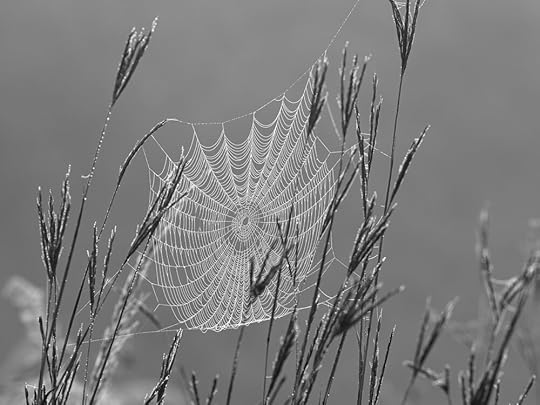
Today’s prompt:
Make a short list of texts from your past, even better if you can select particular passages or moments that meant something to you. Without necessarily revisiting the book (you can do that later), start writing about your relationship to it, in narrative terms. When did you read it? What was your life at the time? Write a scene of your reading it, replete with all the ways it made you feel. Then, consider why you needed it at that particular time. Follow it from there—feeling free to depart from the text.
If I were to make such a list for my last book, Abandon Me, I would choose (I did choose): The Story of Ferdinand, the films Labyrinth and Heavenly Creatures, The Chronicles of Narnia, D’Aulaires Book of Greek Myths, and Rilke’s Book of Hours.
Most recently I did this with Jack London’s White Fang, and the scene I used ended up getting cut from the essay, which is a thirty-page ode to my hands. You really never know what is going to find its way to the surface if you create an opening.
A True Friend and a Good Writer
Charlotte’s Web is my favorite book. It was my favorite book from the first time I read it in second grade – or, rather, the time it was read to me by my teacher Mrs. Whitelaw at Heritage Heights Elementary School in North Tonawanda, New York. After Mrs. Whitelaw read the last page and closed the book, I went to the school library to check it out so I could read it myself. I’ve read the book countless times since then.
If you’re like me, the first line of a book is an indicator of whether it’s worth buying, reading, investing your time. It has to hook you right away. Here are the first few lines of Charlotte’s Web:
“Where’s Papa going with that ax?” said Fern to her mother as they were setting the table for breakfast. “Out to the hoghouse,” replied Mrs. Arable. “Some pigs were born last night.”
Ax. Morning. Baby pigs. Could the stakes be any higher?
Marshall McLuhan, the Canadian academic, had an alternative theory about books: read page 69. If you like it, then chances are you'll like the rest of the book too.
Mothers for miles around worried about Zuckerman’s swing. They feared some child would fall off. But no child ever did. Children almost always hang onto things tighter than their parents think they will.
As a child, I read those words literally. Swing. Falling. Holding on. But as I grew older, the words took on new meaning. Oh, the things I held onto so tightly for so many years. Happy memories. Hurt feelings. Faith.
For me, though, the true test of a book is the last page and especially the last line. As an author myself, I can’t imagine ending a book on a careless note. Probably the most famous last line, and justifiably so, is from F. Scott Fitzgerald’s The Great Gatsby:
So we beat on, boats against the current, borne back ceaselessly into the past.
Another classic last line — and a favorite of my brother’s — is from Ernest Hemingway’s The Sun Also Rises:
Yes,” I said. “Isn’t it pretty to think so?”
My personal favorite last lines, like their more famous cousins, all evoke a kind of bittersweet melancholy:
Don’t ever tell anybody anything. If you do, you start missing everybody. (J.D. Salinger, The Catcher in the Rye)
But wherever they go, and whatever happens to them on the way, in that enchanted place on the top of the Forest, a little boy and his Bear will always be playing. (A. A. Milne, The House at Pooh Corner)
She waited until they were all in their usual places, and then she asked, “Did I choose you, or did you choose me?” And The Souls answered: “Yes!” (E.L. Konigsburg, The View from Saturday)
To Nurse Edna, who was in love, and to Nurse Angela, who wasn’t…there was no fault to be found in the hearts of either Dr. Stone or Dr. Larch, who were – if there ever were – Princes of Maine, Kings of New England. (John Irving, The Cider House Rules)
I always go into a state of mourning at the end of a good book. I grieve the loss of friends whom I’ve grown to love over the course of a few hundred pages. Even if I were to go back to page one and start all over again, nothing compares to the first time you make – and then lose – a friend.
Charlotte’s Web has two sets of last lines. The first is at the end of the penultimate chapter, titled “Last Day,” and is almost unbearably sad:
She never moved again….Nobody, of the hundreds of people that had visited the Fair, knew that a grey spider had played the most important part of all. No one was with her when she died.
I remember reading that line aloud to my two sons when they were young, shortly after I finished chemo. I started sobbing uncontrollably. Tidal waves of tears. My sons looked quizzically at me and then at one another. “Are you OK, Mommy?” my older son asked. I had to laugh in spite of myself.
The last lines of the final chapter are more hopeful. They sound almost like a eulogy – the honoring of a friend lost but remembered. Or perhaps they’re an admonition to lead a better life.
Either way, to me, they are perfect:
It is not often that someone comes along who is a true friend and a good writer. Charlotte was both.
April 17, 2020
THE ISOLATION JOURNALS - DAY 17

Today’s prompt:
Creativity is a field so vast and open that sometimes I freeze up (Deer. Headlights.). What can I write about? Anything? I do not wish for an infinite number of choices. It may sound counter-intuitive but sometimes I find creative freedom by venturing into the tightest spaces. I am by no means a poet, but I like to write poetry that's incredibly formal and restrictive. When I have to focus on counting syllables and cycling through a small number of words, it's almost as if I'm looking in the other direction and great ideas can walk right up to me.
Start with a simple haiku and see how it feels. Take a while to practice. If you like it, try a sonnet. There are lots of different kinds of sonnets to choose from. Try out a few and see what fits. My favorite form is a sestina . It's ridiculously complicated and fun.
Pick out a poetic form and give it a try.
A Pandemic Poem
Going as far back as I can remember, I’ve loved sending mail. Hand-written letters on creamy bond stationery. Typed missives on whisper-thin aerogrammes. Heartfelt notes jotted on Hallmark cards for birthdays and anniversaries, births and deaths.
Every December, I mail holiday cards to friends and family. Recently, I started including a holiday poem – my version of the traditional Christmas letter. The first year, it was four haikus, one about each member of my immediate family. Last year, it was a modern re-telling of A Visit from St. Nicholas (better known as The Night Before Christmas).
Two years ago, the year my brother died, I wrote a villanelle, a fixed-form poem consisting of five tercets and a quatrain. Like the creator of today’s prompt (Ann Patchett, one of my favorite authors), I take surprising pleasure in writing poetry that’s formal and restrictive. It’s like constructing a puzzle – or perhaps solving one.
The poem below is an adaptation of that holiday villanelle from two years ago, heavily modified for our current circumstances.
Notes from Our Town (Revisited)
(with apologies to Thornton Wilder)
Does anyone realize life while they live it?
The saints and the poets, maybe --
Find meaning each day and each minute.
This new villanelle – dare I scarcely begin it?
Ev’rything now is so hazy.
Does anyone realize life while they live it?
The bars are all closed, can you even believe it?
Lines at Whole Foods are just crazy.
Find meaning each day and each minute.
With stay-at-home rules, we are pushed to the limit.
Weekends, they used to be lazy.
Does anyone realize life while they live it?
We can’t touch or reach out. It’s hard to conceive it.
Contact is no longer easy.
Find meaning each day and each minute.
And yet as we age, let’s remember the spirit,
Rare moments that filled us with glee.
Does anyone realize life while they live it?
I hope you find meaning each day and each minute.
April 16, 2020
THE ISOLATION JOURNALS - DAY 16
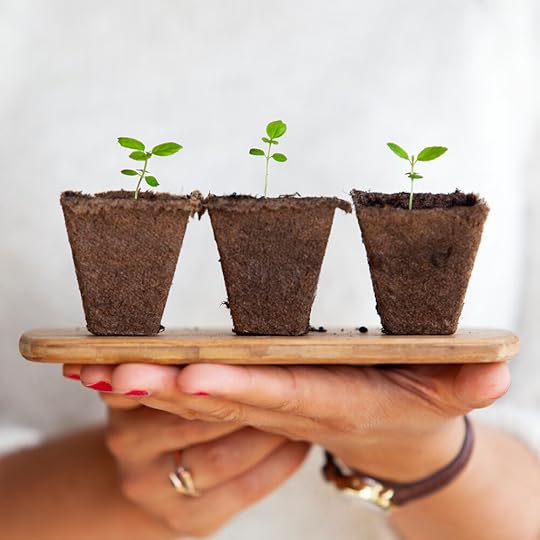
Today’s prompt:
Call someone you haven’t spoken to in some time. Ask what their days and weeks of isolation, or essential work have been like. What is a moment that has been significant for them in recent weeks? Try to understand why that moment in particular. What did it show them about themselves or their families or their coworkers? How did an emotion—a first gut response, like anger—evolve and reveal itself to be something else altogether, like fear?
Then, write a journal entry inspired by that conversation. Explore what stepping out of your own experience and into someone else’s brought up, maybe even clarified, for you. What was unexpected? Did it evoke a significant moment from your own life over these past weeks? How has your understanding of that moment changed?
Rooted in Hope
My friend Tina is a hugger. A toucher. An exuberant high-fiver.
Perhaps it’s her Italian heritage. Perhaps it’s her unique, grab-life-by-the-balls personality. Or perhaps it’s the innumerable losses she’s experienced, many of which we’ve shared and grieved together. Whatever the reason, Tina is a people person. Someone who loves to touch her fellow human beings – literally and figuratively.
Fortunately, Tina has a job that suits her personality. She manages a hardware store. Not a Lowe’s or Home Depot or other corporate big box retailer, but an honest-to-God local hardware store. A store with an old-fashioned popcorn machine that shoppers can help themselves to on an honor-system donation basis. A store that offers happy hours with complimentary wine (really good wine!) for its customers. A store that generously gives back to the community in innumerable ways.
So, how does a high-touch person like Tina survive in these social distancing times?
“It’s hard,” she admits. “What I love about my job is the human relationships, seeing customers’ faces, making personal connections.” Today, Tina wears protective masks that hide her emotions. Nitrile gloves that remove all trace of human touch. The store has plexiglass partitions that impose an additional barrier between her and the rest of the world.
Some change is good. “Usually, when I’d approach shoplifters in my store,” Tina says, “they’d be all up in my grill. ‘I’m just browsing!’ they’d say. Now, I go up to them and ask from six-feet distance, ‘What essential needs can I help you with?’ If they tell me they’re just browsing, I can tell them to get lost. No one’s allowed to browse anymore.”
Most change is not good. Boxes of regulation masks and latex gloves are in such high demand they need to be stored behind the register to prevent theft. Mini-bottles of hand sanitizer are constantly running out because homeless people are desperate for a way to protect themselves from the pandemic. The store’s small staff is always searching for suppliers to replenish toilet paper and Clorox wipes and other items required to appease the panicked public.
Tina’s store sits on the edge between San Francisco’s Chinatown and North Beach – the storied neighborhood of Italian immigrants, Jack Kerouac, and the Beat Generation. On a typical day, tourists from around the world would stop by to pick up a refrigerator magnet, blinged-out keychain, or embroidered tea towel. They’d be full of questions: How do we get to Fisherman’s Wharf? Where do you recommend for lunch? How much farther to Coit Tower? These days are different. No more happy tourists with charmingly accented questions; instead, anxious locals waiting curbside for their online orders.
“It’s a brave new world,” Tina says.
“Has anything surprised you?” I ask. “Things you wouldn’t have expected before the crisis?”
She pauses for a moment and then answers, “Seeds.”
“Seeds?” I ask.
“Yeah,” she says. “Seeds and soil. These days, people seem to want to see things grow.”
That makes sense to me.
Emily Dickinson once wrote that hope is the thing with feathers.
But I think hope is actually a thing with roots.



